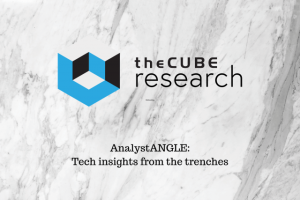When Oracle announced support for the MongoDB API as part of its Autonomous JSON Database cloud service this past week, major tremors could be felt across the cloud database universe. Most JSON developers are generally too busy to notice, but their world just profoundly changed for the better. Those that did hear about it may have written it off as just another JSON cloud database service making itself compatible with MongoDB like Amazon DocumentDB, Azure Cosmos DB, or the myriad of JSON cloud database services utilizing MongoDB under the covers. No big deal, nothing special or unique right?
In fact, no, it’s quite the opposite. The Oracle Autonomous JSON Database cloud service is the only fully autonomous JSON—JavaScript Object Notation—database cloud service. Oracle introduced the revolutionary Autonomous Database cloud service back in 2017. That cloud service is based on the latest converged multi-model—transactional, data warehouse, JSON, XML, time series, graph, spatial, block-chain, machine learning (ML)—Oracle Database. The Autonomous Database is still the only self-driving, self-securing, self-managing, fine grain highly elastic database that leverages several decades of best practices while applying continuous ML to the database cloud service. Autonomous Database only runs on the Oracle Exadata Database Machine in OCI (Oracle Cloud Infrastructure) or Dedicated Region Cloud@Customer. Exadata is unquestionably the fastest Oracle Database platform in any cloud service on the planet. That unique combination makes the Autonomous Database much faster, much simpler, more secure, and more accurate than any other cloud database service, bar none. DBAs no longer have to waste time doing necessary database tuning, management, patching and sharding, and can focus on more strategic matters, such as database schema or application development.
The Autonomous JSON Database Oracle announced 18 months ago is a JSON-optimized, lower cost, Autonomous Database variation. With just the press of a button, the entire Autonomous Database becomes available. That means DBAs can access transactional data without ETLs, utilize ML, take advantage of block-chain, provide visual spatial analysis and much more. Whereas a few other JSON cloud database services have started to add some convergence, automation, and ML, they are conspicuously behind in offering the complete package. The addition of MongoDB API support to JSON Autonomous Database completely changes the JSON database cloud service landscape in performance, simplicity, capabilities, and cost.
Here’s why. The biggest issue MongoDB developers had with Oracle Autonomous JSON Database was that it didn’t have a MongoDB API. It had and still has a MongoDB-like API with SODA (Simple Oracle Document Access), but it wasn’t the MongoDB API. That meant developers had to change their code to make their software work with the Autonomous JSON Database. The one thing developers (and DBAs) hate with a passion, is having to rewrite or alter already working production code. They’ll grudgingly do it only if they have to.
Oracle has removed that obstacle by implementing a MongoDB-compatible API. Now those same developers and DBAs can move their code directly to OCI without having to change that code. There is one exception: currently Oracle does not support the MongoDB Aggregation Pipelines; although, they will later this year. Aggregation pipelines assemble values from various different documents, effectively grouping them. Instead, Oracle provides a much more vigorous (and usually simpler) method of accessing and querying document collections with SQL SELECT statements. SQL SELECT statements are not limited to a single JSON collection but also allow table joins—where the Autonomous Database is incredibly efficient and lightning fast. MongoDB has claimed that SQL is going away and yet they recently added a ‘$sql’ command to their aggregation pipelines (hinting that their own users also like to use SQL). MongoDB apps that use the aggregation pipelines will have to be modified slightly right now and utilize SQL SELECT statements instead. The lack of aggregation pipelines support won’t be an issue much longer. In the meantime, SQL SELECT statements are faster and easier to use. In addition, with SQL it is also possible to convert relational query results into JSON and expose these as a MongoDB collection. Therefore, users can query relational tables from MongoDB applications.
What the Oracle Database API for MongoDB means to DBAs, developers and users is that their applications can move to OCI quickly and easily while receiving significantly:
- Higher throughput and query performance that translates into much lower cloud costs.
- Exadata and notably superior performance.
- Native JSON binary support.
- Oracle Database performance acceleration unique to Exadata.
- Higher uptime, fewer disruptions.
- Faster performance reduces the vCPU computational costs.
- Faster time-to-actionable insights that leads to higher revenues.
- Faster time-to-market that leads to higher revenues.
- Better, automated security threat detection and remediation that reduces ransomware and malware threats.
- Reduced operational management enabling more strategic application development with fewer resources.
- Eliminated costly, time-consuming, error-prone ETLs required to get transactional data—the transactional database is built into the Autonomous Database.
- Support for multiple data models: JSON, GeoJSON, spatial, relational, XML and more.
This is how Oracle has disrupted the MongoDB cloud services market. No other JSON database cloud service comes close. The Autonomous JSON Database is the product that MongoDB and every other JSON database cloud service hopes to offer within this decade. But Oracle has it now. That’s why the market could feel the tremors of this announcement. Faster, simpler, more secure, less work, lower costs.
Developers have a decision to make on whether they would rather move forward with Autonomous JSON, or go backward in time on MongoDB. The choice should be simple.

